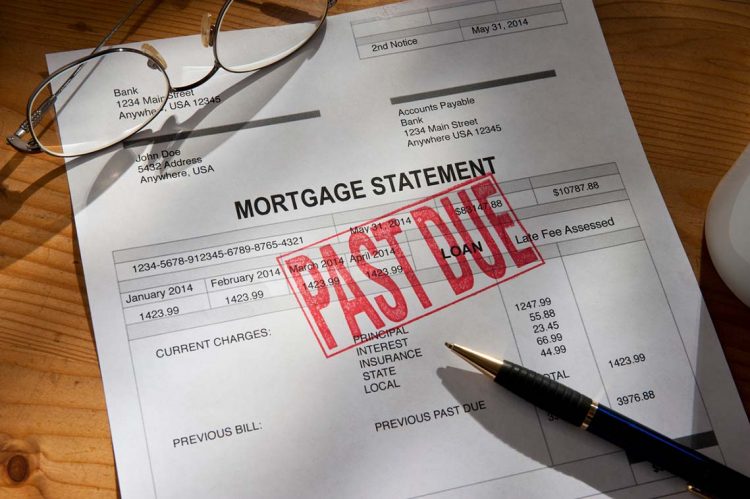The delinquency rate for mortgage loans on one-to-four-unit residential properties decreased to a seasonally adjusted rate of 4.11% of all loans outstanding at the end of the first quarter of 2022, according to the latest Mortgage Bankers Association’s (MBA) National Delinquency Survey, released last week.
For the purposes of the survey, MBA asks servicers to report loans in forbearance as delinquent if the payment was not made based on the original terms of the mortgage. The delinquency rate decreased 54 basis points from the fourth quarter of 2021 and was down 227 basis points from one year ago.
Key findings:
- Compared to last quarter, the seasonally adjusted mortgage delinquency rate decreased for all loans outstanding. By stage, the 30-day delinquency rate decreased 6 basis points to 1.59%, the 60-day delinquency rate remained unchanged at 0.56%, and the 90-day delinquency bucket decreased 48 basis points to 1.96%.
- By loan type, the total delinquency rate for conventional loans decreased 55 basis points to 3.03% over the previous quarter—the lowest level since the fourth quarter of 2019. The FHA delinquency rate decreased 118 basis points to the lowest level since the fourth quarter of 2019 (9.58%), and the VA delinquency rate decreased by 38 basis points to 4.86%—the lowest level since the first quarter of 2020.
- On a year-over-year basis, total mortgage delinquencies decreased for all loans outstanding. The delinquency rate decreased by 154 basis points for conventional loans, decreased 509 basis points for FHA loans, and decreased 276 basis points for VA loans.
- The delinquency rate includes loans that are at least one payment past due but does not include loans in the process of foreclosure. The percentage of loans in the foreclosure process at the end of the first quarter was 0.53%, up 11 basis points from the fourth quarter of 2021 and down 1 basis point from one year ago. The percentage of loans on which foreclosure actions were started in the first quarter rose by 15 basis points to 0.19%. The foreclosure starts rate remains below the quarterly average of 0.41 percent dating back to 1979.
- The non-seasonally adjusted seriously delinquent rate, the percentage of loans that are 90 days or more past due or in the process of foreclosure, was 2.39%. It decreased by 44 basis points from last quarter and decreased by 231 basis points from last year. This is the lowest seriously delinquent rate since first-quarter 2020. The seriously delinquent rate decreased 26 basis points for conventional loans, decreased 115 basis points for FHA loans, and decreased 67 basis points for VA loans from the previous quarter. Compared to a year ago, the seriously delinquent rate decreased by 155 basis points for conventional loans, decreased 567 basis points for FHA loans, and decreased 244 basis points for VA loans.
- The five states with the largest quarterly decreases in their overall delinquency rate were: Louisiana (168 basis points), New Jersey (109 basis points), Indiana (105 basis points), Mississippi (97 basis points), and Maryland (97 basis points).
The takeaway:
“The mortgage delinquency rate dropped for the seventh consecutive quarter, reaching its lowest level since the fourth quarter of 2019,” said Marina Walsh, CMB, MBA’s vice president of Industry Analysis. “The decrease in delinquency rates was apparent across all loan types, and especially for FHA loans. The delinquency rate for FHA loans declined 118 basis points from fourth-quarter 2021 and was down 509 basis points from one year ago.”
According to Walsh, most of the improvement in loan performance can be attributed to the movement of loans that were 90-days or more delinquent. The majority of these aged delinquencies were either cured or entered post-forbearance loan workouts.
Added Walsh, “Given the nation’s limited housing inventory and the variety of home retention and foreclosure alternatives on the table across various loan types, the probability of a significant foreclosure surge is minimal. Borrowers have more choices today to either stay in their homes or sell without resorting to a foreclosure.”












